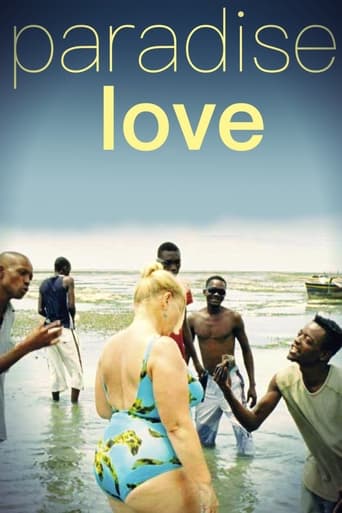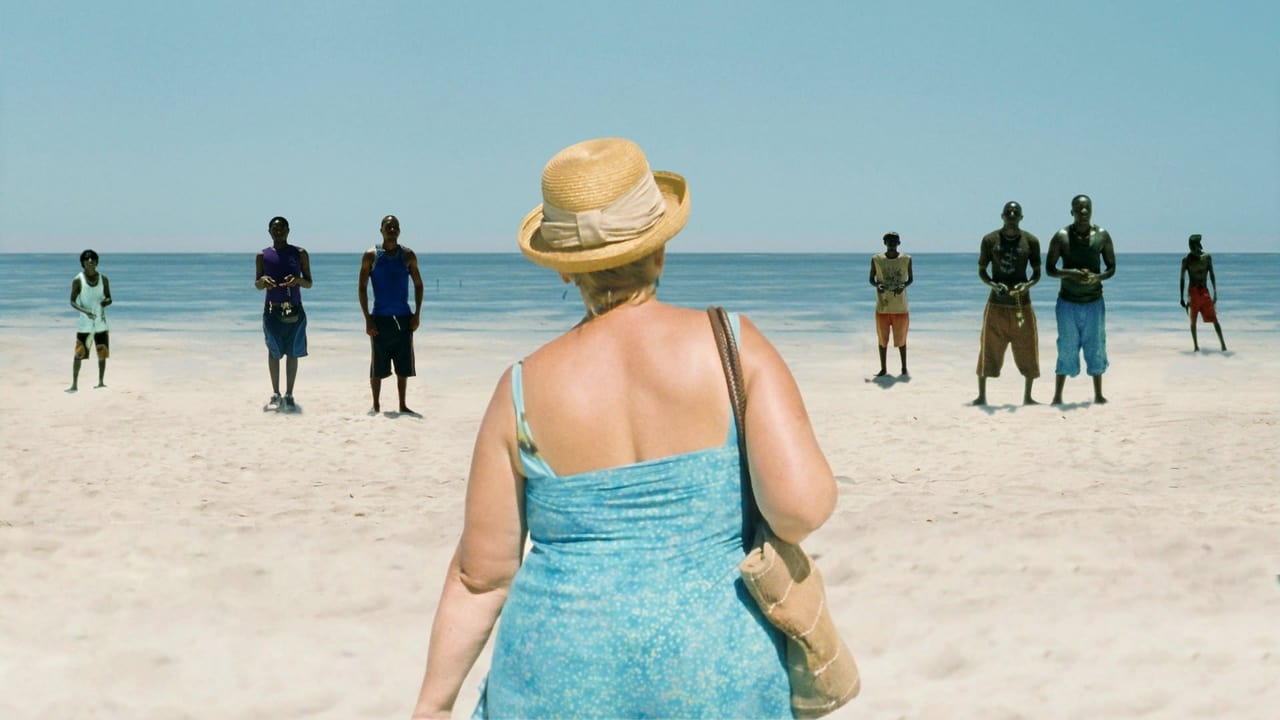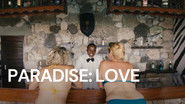Lute
I take issue with an earlier review that referred to this character as a "witless African Boy" given to Teresa to fondle on her birthday. This whole scene turns on his performance. His lightness, elegance and grace as a dancer contrast to the crude slouching and humping of the women, including Teresa, who were fixated on getting him erect. In short, the stripper has the moral high ground here.
mamlukman
I watched this for a very particular reason: last year I began researching conversions to Islam among Westerners. I found that 75% are women between 15-24. That seemed a bit odd to me...then I read a French report on Islamic extremists--most were, surprisingly, women converts! Then I began thinking about cults...the Manson Family...mostly women...Branch Davidians....mostly women....and so on. Then there is the phenomenon of the kidnapped girls, some of whom had the freedom to run away but refused to do so (Elizabeth Smart, et al.). While watching "Beatles: Eight Days a Week," which is mainly about the concerts the Beatles gave, it struck me that virtually the entire audience was young girls, all hysterical. Why???? Then, when thinking one day about Obama's mother (married a Kenyan student when she was very young, then married an Indonesian), I stumbled across this sub-culture of women who search out exotic locales for sex tourism. It's not a new phenomenon, but I'm not sure when it began-- "Heading South," about female sex tourism is supposedly set in 1979. "Bezness as Usual" is set in Tunisia in present day--but it concerns what happened almost 30 years ago--so c. 1986 or so. "Paradise: Love" is present day, so 2012. I am curious when this phenomenon began--when women as well as men began taking sex holidays. Maybe the sexual revolution of the 1960s unleashed something??? What's up with all these women? If anyone has a clue, please answer in FAQ comments.As for "exploitation," it is not an easy issue. Clearly the power is in the hands of the European/American women. They have the money, they have passports to leave when they're ready, and they seem to be relatively safe. One movie said something like "Tourists don't die." The beach boys on the other hand know exactly what they're getting into. Yeah, you could say they "don't have a choice" but as Sartre said, "There is always a choice." And they do have power too--the women get emotionally attached to them; they never, ever get emotionally attached to the women--even if they marry them. They manipulate the women, as "Paradise: Love" shows so well. The hero of this particular movie is Joseph (or something like that) the bartender. At the end of the movie he says he "wants" to have sex with her but "is not used to" doing such things. In the end, his reluctance gets him kicked out of the room. But he is the moral force, such as it is, of the movie.If this is the face that the West presents in these countries, it's no wonder the West is hated and despised. But the women--in all these movies--don't give a second's thought to that. It's all about them personally, and the larger picture is not even on the horizon.This is a good movie in the sense that it at least tries to take a stab at explaining the women's motivations. A second movie, Dutch, 2016, is "Benzess as Usual," where the son of one of these vacation idylls returns to meet his father. In this case, it's Tunisia. But exactly the same thing is going on--older women using younger, poor men for sex. And, as hinted at in "Headed South" in this case the beach boy is taken to the Netherlands and then Switzerland (by different women!). He marries both, but of course it ends badly. A third movie in this genre is "Heading South." In this case, it's French and American women in Haiti. (But it happens throughout the Caribbean, esp. Jamaica). The location changes, the story is the same. There are also numerous youtube videos on this theme. And then of course there are books like "The White Masai" about a young (!) Swiss woman who marries a Masai--and not an educated, Westernized one, but a native from a village living in a mud hut. It's beyond bizarre. She is "shocked" when things don't work out. I am simply speechless.
laneamala
This film is certainly not for the faint of heart. A woman (a nurse). who is obsessive compulsive about cleanliness and who micromanages her daughter, escapes to Kenya for a vacation. She 'loves' her daughter and she wants 'love' from these male prostitutes. The whole concept is extremely sad. Maybe it is true that this is the human condition for some women but I just found it too offensive to watch. It made me sick to my stomach to see the racism and objectification going on. I disagree with other reviewers' descriptions of the sexual frankness and naturalness. The whole film is fraught with awkwardness and vulgarity. None of these characters is really there for love. It is a docu-drama on sexual exploitation and racism. And it reveals painfully the incredible imbalance of power that exists on this planet as well as the extreme lack of sexual maturity and ability to create intimacy in our lives. Eros permeates everything and is what can lead us to experience true intimacy and ecstasy. But when all is seen as an object for one's own pleasure, for an escape from pain, there is no eros, no love. Of course, the filmmaker isn't trying to show us true love. Obviously, this is about the whole problem of the emptiness in these women's lives. And perhaps it shows men who are into sex tourism just what they're doing better than if it were a male centric sex tourist film. But I find it so flat and I agree with one of the reviewers that that is because the director never takes a moment to allow even a bit of connection, true humanity to shine through. It's hard to find this scenario plausible because I can't believe that the only thing these woman want to do is get laid. But then again, I might be naive. Maybe that is all they want after all.
Tomass Parups
"Paradise: Love" or "Paradies: Liebe" is Ulrich Seidl's first installment in his "Paradise" trilogy. It premiered at the "Cannes Film Festival" last year, but only recently has been widely available. Even on your first glance at a promotional poster or still of the film, it is pretty clear that the word "paradise" is meant to be sarcastic. The film stars Margarete Tiesel as a middle aged Austrian housewife named Teresa,who lives in an apartment block in Vienna with her overweight, teenage daughter. Teresa is a single mother and longs for a man to satisfy her sexual needs as well as show her love and passion. She and her two friends decide to go on a vacation to Kenya to unwind from the stresses of everyday life. Teresa's friend, Inga has visited Kenya multiple times and is a regular patron of it's wide range of male prostitute's. She convinces Teresa to try out their services and claims that the experience is fantastic. Unlike Inga, Teresa faces a psychological dilemma of whether on not the young men find her attractive. This leads her to backing out of the sex that she is offered, until she meets a man named Munga, played by Peter Kazungu who offers his services for free and only asks for love. Unfortunately, for him love qualifies as financial aid to his relatives. Teresa soon realizes that she is being used and how low she has sunkDirector, Ulrich Seidl seems to have a very bleak and distorted view of the world. "Paradise: Love" is an incredibly depressing examination of the human condition, but at the same time it is painfully honest. Similar to Lars Von Trier, Seidl seems to enjoy exploring the filth hidden inside human beings and seeing how much humiliation a human being can endure. In no way could I possibly say that I enjoyed this film, but it most definitely is good cinema. Despite it being utterly repugnant, it does provide some intricate social commentary not only on prostitution, but on the state of decay in which Africa is currently in. The film forges it's own sick brand of cynical humor, which intentionally does not bring some light to the story, but make it feel even more cringe worthy. On a technical level "Paradise: Love" succeeds at showcasing Kenya's beauty as well as diving into it's dark recesses which is topped off by very long takes and tracking shots, which are always a great addition to a film.I'm not sure I would like to see it again, but nevertheless "Paradise: Love" is a painfully honest example of great social commentary and an examination of Africa's recent decay. Margarete Tiesel gives a great and incredibly brave performance, which is topped off with Ulrich Seidl's fantastically disgusting direction. After seeing this, I'm very keen on seeing the next installment in the series, "Paradise: Faith"


 AD
AD




